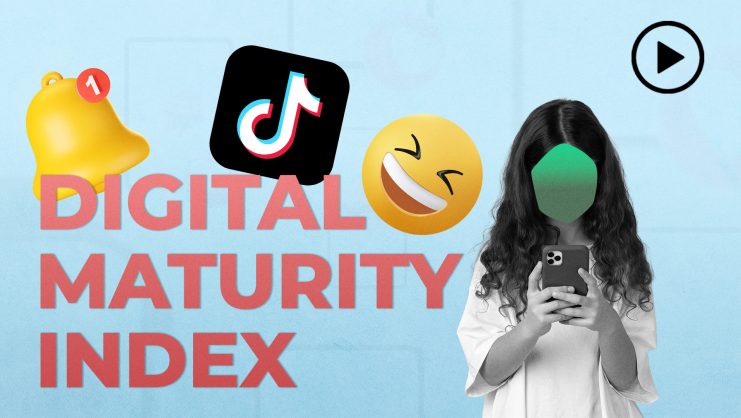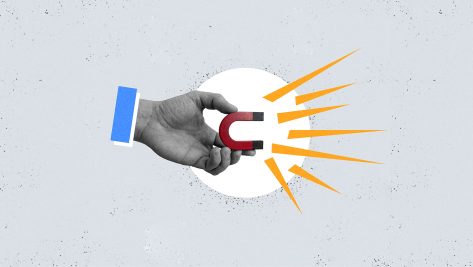Whatever your role at work before the COVID-19 pandemic, it is likely to have since acquired a completely new twist. Our ways of working have been disrupted in various ways, from the type of interactions between colleagues and clients to the very basis of industries being turned upside down.
Our first and very natural response when everything is changing, as is the case these days, is to search for something to hold on to, something that gives form and meaning to our lives and to our work. For example, many of us turn to philosophy; in fact social media is abundant with citings of Heraclitus and the timeless truth that “the only constant is change” and Nietzsche’s famous line, “What does not kill me, makes me stronger.” Others among us might find solace watching the news and following the data, or in joining a group in protest. These days, many of us Zoom like champions. We wear our masks with diligence and duty.
Yet, it does not seem to be enough. The stress from uncertainty continues to build. In fact, in recent months, a trend has developed in which executives have increasingly been turning to psychologists and coaches such as myself in order to find refuge from what seems to be never-ending professional adjustments and workplace restructurings. Uncertainty is difficult to manage, and we have found ourselves, due to the pandemic, on uncertain footing both in the workplace and in our day to day lives. When you can manage to hold it together during work hours, but collapse at the end of the day, it is a sign that the situation is not sustainable.
What if you are tired of the changes and you are worried that you might not be strong enough to endure? What can we hold on to when everything seems to be too much to take?
A good first step to solace in times like this is to reach out to others, to strengthen our bonds and communications. But this act of reaching out to our friends and family can only do so much, particularly as the first waves of COVID-19 infections around the world turned into second waves and our collected sense of isolation began to take on a feeling of permanence. Sometimes there is nothing left to say to one another. This is the moment when we need to rethink our strategy and I propose, this must be done inside ourselves, via our own, personal strengths.
The scientific study of human flourishing identifies strengths as highly valued ways of being, thinking, feeling, and behaving that provide us with a sense of mastery, vitality, and authenticity. Having a strength means you are good at something, and that you love doing it. A strength emerges at the point where talent meets enjoyment, energy, and ease.
There are strengths of being, like honesty, curiosity, and responsibility. There are strengths of thinking, which may be analytical, creative, strategic, or optimistic. There are strengths related to how and what we feel, like gratitude, social intelligence, emotional awareness, or kindness. And strengths of behavior, that show up as persistence, resilience, leadership, or collaboration.
It is essential to be aware of your own personal strengths because it not only provides you with a blueprint for your optimal contribution at work, but it also serves as a foundation during times of struggle.
In order to find the support you need, from within yourself, during times of uncertainty, I recommend the following five steps:
- Remember your core. Go back to a time in your life in which you were truly at your best. What was going on then? Which positive qualities did you rely on or develop in that time? What gave you a sense of vitality, efficacy and energy? Which characteristics did other people value and cherish in you? Write down all the labels of strengths that you think you have within you, whether you are consciously using them or not.
- Know your profile. Rank your strengths in order of importance, trying to get an overview of how they show up in your life. Do your strengths of teamwork, proactivity, and persistence make you a people person who thrives being part of a group, working towards a shared goal? Are you an innovative problem solver, who urgently needs to recreate a bubble of undisturbed focus to rekindle your creative power? Are you a curious learner, craving for new knowledge and input from unique sources of information to come up with a new vision? What are your strengths, how do they interact and what do they mean to you?
- Identify the opportunity. Think about your current situation and identify a challenge you need to face, that would help you regain a sense of safety and stability in your life. Sum up your what in a one-sentence statement of intention. Test for agency, as what you commit yourself to needs to depend on your own actions, rather than outside forces or circumstances. Are you able to respond? Can you hold yourself responsible? If yes, it is time to identify the how.
- Leverage your greatest potential. Map out how your strengths can help you live up to the challenge. How are you going to activate them? When? What are powerful combinations that will help you navigate the storm and come out safely on the other side?
- Implement and fine-tune. Strengths are powerful and need to be handled with care. Check possible obstacles or downsides of strengths taken to an extreme. Are there strengths you need to mindfully regulate, as they might get into your way or burn you out? What are the warning signs that you might be doing too much of a good thing?
If you are getting caught up in a mindset of lack, thinking that you first need to overcome your weaknesses before you can activate your strengths, consider Peter Drucker’s wise advice: “To make strength productive is the unique purpose of organization. It cannot, of course, overcome the weaknesses with which each of us is abundantly endowed. But it can make them irrelevant.”
Activating your strengths is the easiest way to make weaknesses irrelevant. Once you realize all the things you can achieve with the qualities you already have, you can stop worrying about the ones you have not mastered, yet. When you step into the power of your positive essence, you can allow yourself to let go of perfectionism. You do not need to have it all. You need to make the best possible use of what you have and who you are – and then rely on all those wonderful people around you to do the same.
© IE Insights.











